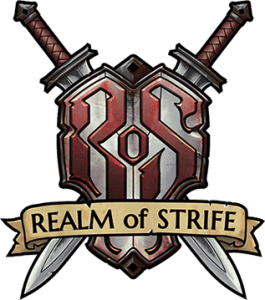Psychological Effects are most often a direct result or side effect of physical Injuries or trauma, leading to temporary or long term phobias or irrational responses to the source of damage. An example would be a character nearly mauled to death by wolves, developing a fear of wolves that induces certain psychological effects whenever he faces wolves in the future. Likewise severe burning injuries could cause a fear of fire.
Minor Injuries would not generally cause psychological effects, however Serious and Critical injuries would be more likely to leave a lasting psychological impact. Often times these effects are permanent even when the physical injury is not.
Psychological effects may also apply due to past trauma found in a characters back story, or from a non-combat related situation (i.e. a character that is tied up and forced to watch an Ogre gruesomely murder a family may develop a Hatred for all Ogres). GMs should assign a degree of severity to the Psychological Effect, ranging from mild to uncontrollable
Depending on the severity of the Psychological Effect, it may be possible to resist it by passing a Resolve Test
| Degree of Psychological Impact | Resolve Test Modifier |
| Mild | Standard Resolve (no modifier) |
| Moderate | -3 Resolve |
| Severe | -6 Resolve |
| Extreme | -9 Resolve |
| Uncontrollable | No Resolve test allowed |
Types of Psychological Effects
Phobia
A deep rooted fear of whatever caused the physical injury or trauma, resulting in a fight, flight, freeze, or fawn response.
At the outset of facing targets or situations related to a characters particular phobia roll 1d4 and apply the effects listed in the chart below for the duration of the encounter (or until passing Resolve test matched to the degree of Psychological impact in subsequent rounds)
| Roll 1d4 | ||
| 1 | Fight | Must fight the target with singular focus, effectively treated as permanently taunted until the target is defeated or the encounter is otherwise resolved |
| 2 | Flight | Must always attempt to move directly away from the target at max speed |
| 3 | Freeze | Become immobilized for the duration of the effect (cannot move, or use instants/actions that require movement); upon taking any damage from the target this effect transitions to either Fight or Flight |
| 4 | Fawn | Will beg, plead, or attempt to appease the target in some way, offering just about anything to avoid conflict with it |
Hatred
An intense and illogical feeling towards whatever caused the physical injury, often leading to rash or violent behavior
- +10% damage against hated targets but also take +10% from them as well
- if effected by hatred, must ALWAYS move to attack hated targets regardless of the situation
Madness
A stackable psychological effect that causes a targets behavior to be increasingly erratic as the number of stacks increases. When afflicted by madness roll a d12 and consult the chart below. For each stack of madness add +1 to the dice roll.
If stacks of madness are not specifically said to be permanent, 1d6 stacks are removed by completing a full, uninterrupted rest. Permanent stacks can only be removed through magical means.
Short term effects are rolled at the start of each of the characters turns.
Long term effects are rolled at the start of each new day or after any half or full rest, and persist until a new effect is rolled. If under Long Term effects of madness, going into combat (or any turn based encounter) shifts into Short Term madness for the duration.
| d12 | Short Term | Long Term |
| 2-3 | Character becomes twitchy or acts oddly, treat as Vulnerable. | Same as short term, but may have random out bursts similar to Tourette syndrome |
| 4-5 | Character becomes incredibly anxious or panicked, treat as Winded and suffering -3 to all Stat tests | Same as short term, and will typically be resistant or suspicious to any suggestions made by others |
| 6-7 | Character is delusional or paranoid, becoming frightened of a random target or object each round | Character sees (or otherwise perceives) things that aren’t real, causing them to behave erratically or irrationally |
| 8-9 | Character babbles incoherently or loses the ability to speak at, treat as Silenced. | Same as short term, character cannot communicate in any way and attempts to write will either be gibberish or nonsensical |
| 10 | Character becomes confused, drops to the bottom of the turn order, and then loses there turn if failing an Intellect test. | Character becomes highly susceptible to the suggestions of others, doing what they are told without much thought provided it does not cause self-harm |
| 11 | Character loses all ability to tell friend from foe, and always attacks or casts against the nearest target. | Character suffers from some form of temporary amnesia and can’t remember who they are or any past events. |
| 12 | Character goes catatonic, becoming immobilized and unresponsive, even to taking damage. | Character is in a stupor, largely unresponsive, but will follow along or move if prodded or led. |





